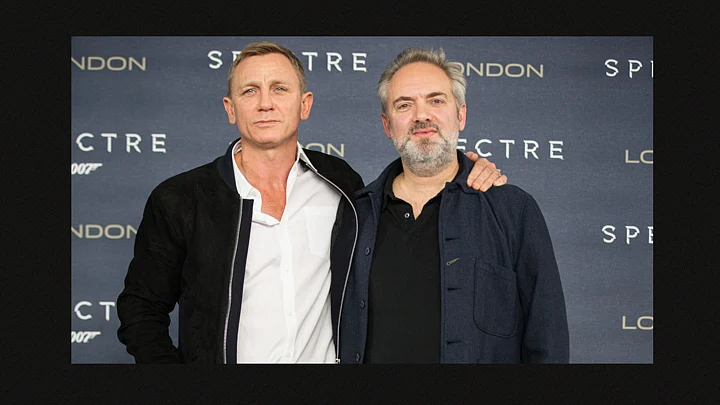Sam Mendes, director of Skyfall (2012) and Spectre (2015) tells us how he raises the bar with every Bond movie he takes on. Mendes says the key is “to make the familiar a little bit strange.” But how exactly does he do that? Let’s find out.

Q: All Bond films are packed with action, how does one raise the bar with every film?
Sam Mendes: When we did Skyfall, we created a very linear action sequence, a real chase that went from one location to another, very fast, and we ended up shooting over a long distance in Istanbul, Adana and the mountains. Spectre was the opposite. I wanted to drop the audience right in the dusty, exciting environment.
Q: What if the action doesn’t match up to the previous Bond movie, does that cross your mind?
Sam Mendes: The great danger with Bond is that you have action for action’s sake and you end up simply striving to be bigger and louder. But, what I wanted to do here was to create something that had atmosphere, beauty and scale. The point was that the character was lost in this kind of vast labyrinth, briefly, and I hope the audience will be fully immersed in it.
Q: Promos of all Bond films look similar because the Bond stamp is always there. How do you make sure that the film is familiar, yet different?
Sam Mendes: I don’t know who said it, but it’s the job of the artist to make the familiar strange, and the strange familiar. I think that is a great line to take into Bond if you are working on it, because you can’t entirely invent things. It is not a fantasy. You are not in a Marvel world or a JK Rowling world. You can’t create things that don’t exist in our own universe. So you have to make the familiar a little bit strange.

Q: What’s the key to a good Bond drama?
Sam Mendes: There are religious overtones and there are overtones of organised crime and overtones of business enterprise. What they talk about is specific, but they don’t go into too much detail — they briefly mention counterfeit pharmaceuticals, they speak about surveillance, about human trafficking. You get a sense of what they do without it being too specific. I think that is the game you play with Bond. You want just enough information, but not too much.
Q: According to you, how much of a role do locations play in Bond movies? And how many of them are computer generated?
Sam Mendes: The locations are essential. We could have done a CG plane chase for example, but the feeling that you are doing things for real is part of why I make any film, especially a Bond movie. I am not somebody who enjoys or who is drawn to making films on green screen. I am all for supplementing real effects with computer generated enhancement, but you have to base everything you do on some core of reality.

Q: What are the challenges you’ve faced while shooting grand action sequences out in the open, in unknown locations?
Sam Mendes: Snow and smoke don’t move as you imagine, water does not move as you imagine. Things are uncontrollable- weather, wind, birds, animals, crowds and vehicles all behave in ways that you can’t anticipate. And it is those imperfections within the scale that make it interesting. They make an audience feel that it is happening in the real world and that it is not a distortion.
Q: How do the characters that you introduced in Skyfall fit in Spectre?
Sam Mendes: I had cast a new M and a new Q and a new Moneypenny and inherited a great Tanner in Rory Kinnear. I felt that we had established them in the last movie and they were younger than Bond, with the exception of Ralph. They were coming up through the ranks and capable of going out into the field with him and, in Naomie and Ralph’s case, capable of handling a weapon. There were some real options here as to where we could take the characters next.

Q: So you replaced the bad guy in Spectre. Instead of Javier Bardem (Skyfall) we will see Christoph Waltz. Tell us about him..
Sam Mendes: Like everybody else I’ve been blown away by the work he has done in Tarantino’s movies, but also in other movies too. You have to keep reminding yourself, ‘My God, he is so subtle with language, so detailed, and yet he is not working in his first language. It’s remarkable. He has an incredible understanding of nuance. He gives you infinite options in the cutting room. I’m sure audiences will enjoy his performance.
(At The Quint, we question everything. Play an active role in shaping our journalism by becoming a member today.)
